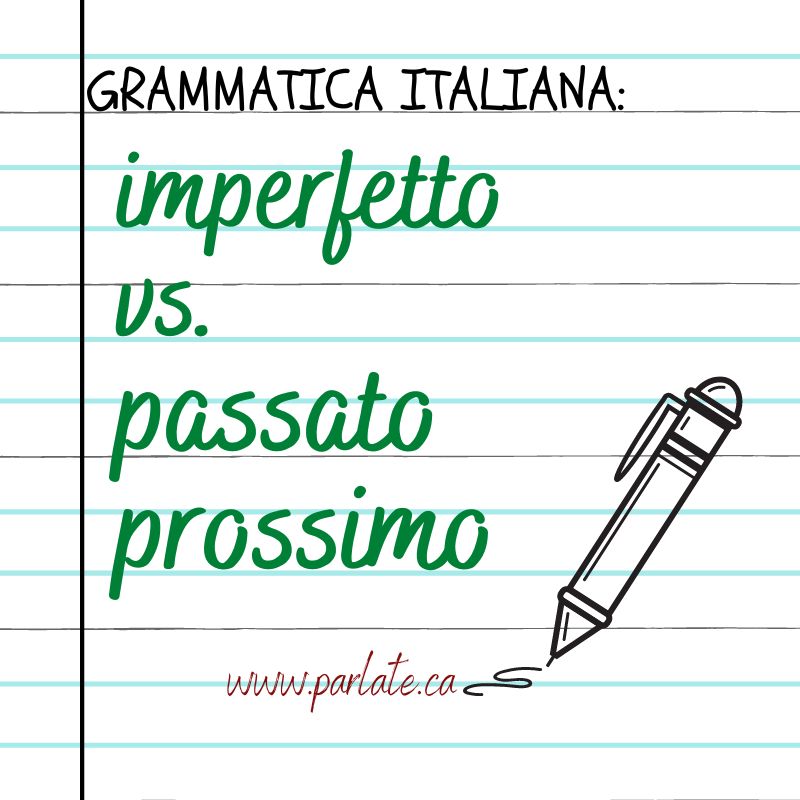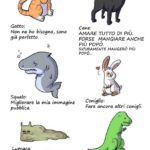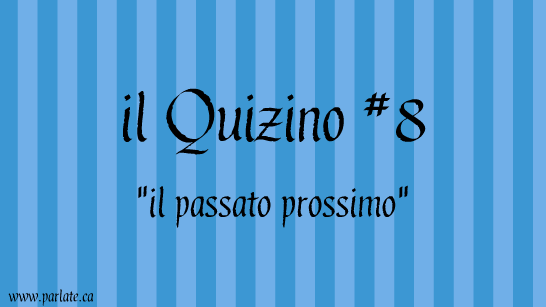English follows
Diciamocelo…i verbi italiani non sono proprio una passeggiata.
Può infatti capitare di avere dei dubbi nel scegliere il tempo giusto al momento giusto. I due tempi verbali che capita a moltissimi di confondere sono l’imperfetto e il passato prossimo.
Comunque ho un trucco facile facile per capire quando usare l’uno o l’altro.
Sono sicura che applicarlo ti faciliterà la vita.
Ecco come funziona:
- se parli di un’azione abituale nel passato, usi l’imperfetto. In inglese equivale a “used to”.
- se parli di un’azione passata conclusa, avvenuta una o più volte, usi il passato prossimo.
Facciamo degli esempi:
imperfetto
1. L’anno scorso andavo in montagna.
– Last year I used to go to the mountains.
passato prossimo
2. L’anno scorso sono andato in montagna.
– Last year I went to the mountains.
ESERCIZIO – Scegli il tempo giusto:
Anni fa i maschi avevano/hanno avuto un unico problema esistenziale al mare: scegliere a quale categoria di uomo in costume da bagno appartenere. Slip o boxer? Il peso dell’apparenza estiva cadeva/è caduto sulle donne. L’uomo invece era/è stato funzionale alla vacanza: caricava/ha caricato l’auto di valigie, biciclette e gommoni, guidava/ha guidato fino a destinazione, montava/ha montato e smontava/ha smontato tavolini e ombrelloni, apriva/ha aperto e chiudeva/ha chiuso sdraio, gonfiava/ha gonfiato e sgonfiava/ha sgonfiato canotti. Provava/ha provato a cimentarsi in qualche attività sportiva che non praticava/ha praticato mai durante l’anno, combatteva/ha combattuto con il vento contrario alla direzione del suo riporto, fingeva/ha finto di approfondire le pagine di politica e sport. (adattato da Donna Moderna)
TRADUZIONE:
Years ago, males used to have a single existential problem at the sea: choosing which category of man in a bathing suit to belong to. Slip or boxer? The weight of summer appearance used to fall on the women. The man, on the other hand, used to be functional to the holiday: he used to load the car with suitcases, bicycles and rafts, he sued to drive to their destination, he used to assemble and disassemble tables and umbrellas, he used to open and close deck chairs, he used to inflate and deflate dinghies. He used to try his hand at some sporting activity that he never used to practice during the year, he used to fight the wind against the direction of his come over, he used to pretend to deepen the pages of politics and sport. (adapted from Donna Moderna)
Soluzione in basso!
ENGLISH VERSION
Let’s face it … Italian verbs are not exactly a walk in the park.
In fact, it may happen to have doubts in choosing the right tense at the right time. The two tenses that many people get confused are the imperfetto and the passato prossimo.
However, I have a very easy trick for figuring out when to use one or the other.
I’m sure applying it will make your life easier.
Here’s how it works:
- if you talk about a habitual action in the past, you use the imperfetto. In English it is equivalent to “used to”.
- if you are talking about a completed past action, that occurred once or more times, you use the passato prossimo.
Let’s make some examples:
imperfetto
1. L’anno scorso andavo in montagna.
– Last year I used to go to the mountains.
passato prossimo
2. L’anno scorso sono andato in montagna.
– Last year I went to the mountains.
EXERCISE – Choose the correct tense:
Anni fa i maschi avevano/hanno avuto un unico problema esistenziale al mare: scegliere a quale categoria di uomo in costume da bagno appartenere. Slip o boxer? Il peso dell’apparenza estiva cadeva/è caduto sulle donne. L’uomo invece era/è stato funzionale alla vacanza: caricava/ha caricato l’auto di valigie, biciclette e gommoni, guidava/ha guidato fino a destinazione, montava/ha montato e smontava/ha smontato tavolini e ombrelloni, apriva/ha aperto e chiudeva/ha chiuso sdraio, gonfiava/ha gonfiato e sgonfiava/ha sgonfiato canotti. Provava/ha provato a cimentarsi in qualche attività sportiva che non praticava/ha praticato mai durante l’anno, combatteva/ha combattuto con il vento contrario alla direzione del suo riporto, fingeva/ha finto di approfondire le pagine di politica e sport.(adattato da Donna Moderna)
TRANSLATION:
Years ago, males used to have a single existential problem at the seaside: choosing which category of man in a bathing suit to belong to. Slip or boxer? The weight of summer appearance used to fall on the women. The man, on the other hand, used to be functional to the holiday: he used to load the car with suitcases, bicycles and rafts, he sued to drive to their destination, he used to assemble and disassemble tables and umbrellas, he used to open and close deck chairs, he used to inflate and deflate dinghies. He used to try his hand at some sporting activity that he never used to practice during the year, he used to fight the wind against the direction of his comb-over, he used to pretend to deepen the pages of politics and sport. (adapted from Donna Moderna)
SOLUZIONE:
Anni fa i maschi avevano un unico problema esistenziale al mare: scegliere a quale categoria di uomo in costume da bagno appartenere. Slip o boxer? Il peso dell’apparenza estiva cadeva sulle donne. L’uomo invece era funzionale alla vacanza: caricava l’auto di valigie, biciclette e gommoni, guidava fino a destinazione, montava e smontava tavolini e ombrelloni, apriva e chiudeva sdraio, gonfiava e sgonfiava canotti. Provava a cimentarsi in qualche attività sportiva che non praticava mai durante l’anno, combatteva con il vento contrario alla direzione del suo riporto, fingeva di approfondire le pagine di politica e sport.(adattato da Donna Moderna)
- Il Discorso diretto e discorso indiretto in italiano

- I massacri delle foibe – Il Giorno del Ricordo

- Un racconto di Natale: Il Tesoro dei Poveri di Gabriele D’Annunzio

- Estate di San Martino- leggenda e tradizioni

- I verbi fraseologici: venire/andare a prendere

- Michela Murgia: tenace scrittrice e attivista italiana

- I Vini italiani |Storia e Cultura

- Come diventare migliori comunicatori in italiano

- 3 ways to pronounce the s in Italian













